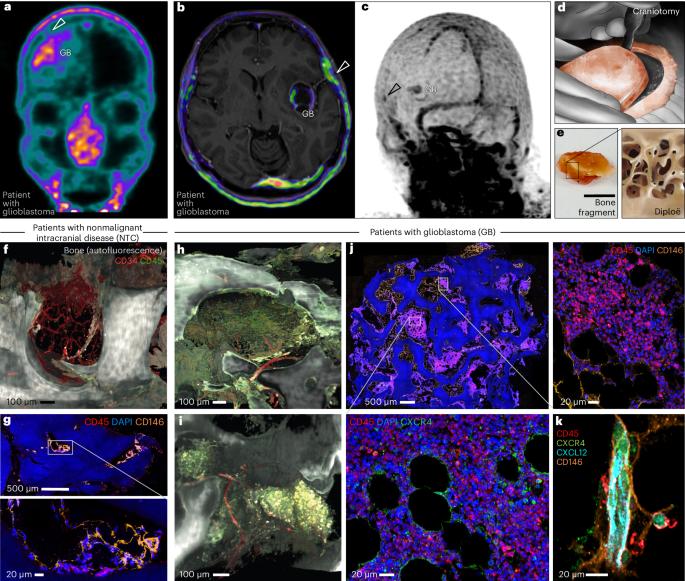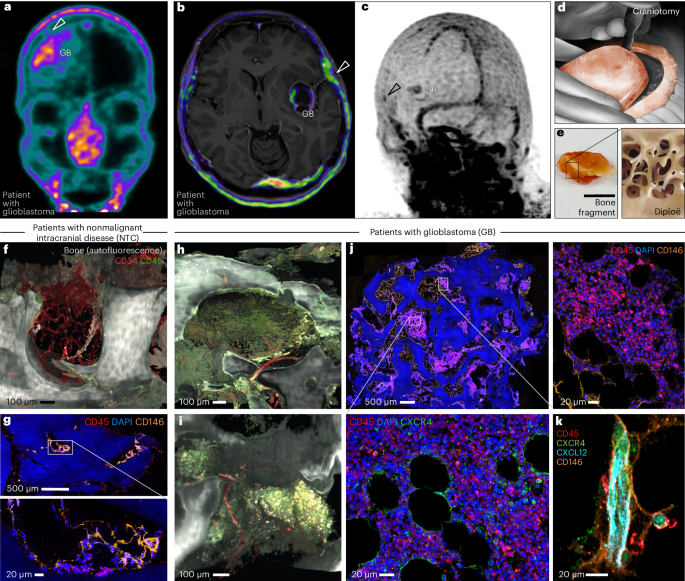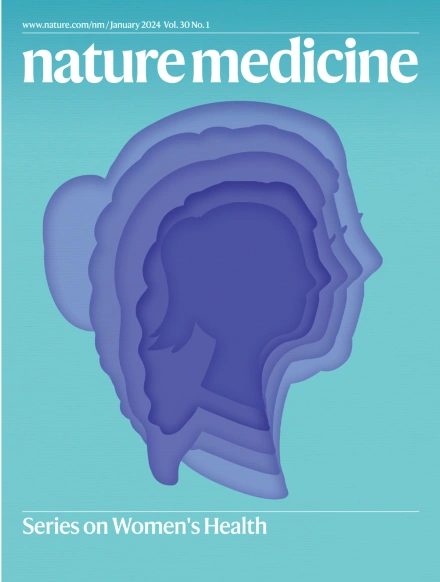Cranioencephalic functional lymphoid units in glioblastoma
IF 58.7
1区 医学
Q1 BIOCHEMISTRY & MOLECULAR BIOLOGY
引用次数: 0
Abstract
The ecosystem of brain tumors is considered immunosuppressed, but our current knowledge may be incomplete. Here we analyzed clinical cell and tissue specimens derived from patients presenting with glioblastoma or nonmalignant intracranial disease to report that the cranial bone (CB) marrow, in juxtaposition to treatment-naive glioblastoma tumors, harbors active lymphoid populations at the time of initial diagnosis. Clinical and anatomical imaging, single-cell molecular and immune cell profiling and quantification of tumor reactivity identified CD8+ T cell clonotypes in the CB that were also found in the tumor. These were characterized by acute and durable antitumor response rooted in the entire T cell developmental spectrum. In contrast to distal bone marrow, the CB niche proximal to the tumor showed increased frequencies of tumor-reactive CD8+ effector types expressing the lymphoid egress marker S1PR1. In line with this, cranial enhancement of CXCR4 radiolabel may serve as a surrogate marker indicating focal association with improved progression-free survival. The data of this study advocate preservation and further exploitation of these cranioencephalic units for the clinical care of glioblastoma. Analyses of tumor and bone marrow tissue from patients with glioblastoma demonstrate the presence of extracerebral niches that contained tumor-reactive and memory T cell subsets, including early stem-like phenotypes and stages, indicating antitumor CD8+ T cell differentiation in cranial bone marrow.


胶质母细胞瘤中的颅脑功能淋巴单位
脑肿瘤的生态系统被认为是免疫抑制的,但我们目前的认识可能还不全面。在这里,我们对胶质母细胞瘤或非恶性颅内疾病患者的临床细胞和组织标本进行了分析,结果表明颅骨(CB)骨髓与未接受治疗的胶质母细胞瘤肿瘤并存,在最初诊断时蕴藏着活跃的淋巴细胞群。通过临床和解剖成像、单细胞分子和免疫细胞图谱分析以及肿瘤反应性定量分析,确定了 CB 中的 CD8+ T 细胞克隆型,这些克隆型在肿瘤中也有发现。这些克隆的特点是根植于整个 T 细胞发育谱的急性和持久的抗肿瘤反应。与远端骨髓不同的是,肿瘤近端 CB 龛显示肿瘤反应性 CD8+ 效应细胞类型表达淋巴出路标记 S1PR1 的频率增加。因此,CXCR4 放射性标记的颅骨增强可作为一种替代标记物,表明病灶与无进展生存期的改善有关。本研究的数据主张在胶质母细胞瘤的临床治疗中保留并进一步利用这些颅脑单位。
本文章由计算机程序翻译,如有差异,请以英文原文为准。
求助全文
约1分钟内获得全文
求助全文
来源期刊

Nature Medicine
医学-生化与分子生物学
CiteScore
100.90
自引率
0.70%
发文量
525
审稿时长
1 months
期刊介绍:
Nature Medicine is a monthly journal publishing original peer-reviewed research in all areas of medicine. The publication focuses on originality, timeliness, interdisciplinary interest, and the impact on improving human health. In addition to research articles, Nature Medicine also publishes commissioned content such as News, Reviews, and Perspectives. This content aims to provide context for the latest advances in translational and clinical research, reaching a wide audience of M.D. and Ph.D. readers. All editorial decisions for the journal are made by a team of full-time professional editors.
Nature Medicine consider all types of clinical research, including:
-Case-reports and small case series
-Clinical trials, whether phase 1, 2, 3 or 4
-Observational studies
-Meta-analyses
-Biomarker studies
-Public and global health studies
Nature Medicine is also committed to facilitating communication between translational and clinical researchers. As such, we consider “hybrid” studies with preclinical and translational findings reported alongside data from clinical studies.
 求助内容:
求助内容: 应助结果提醒方式:
应助结果提醒方式:


